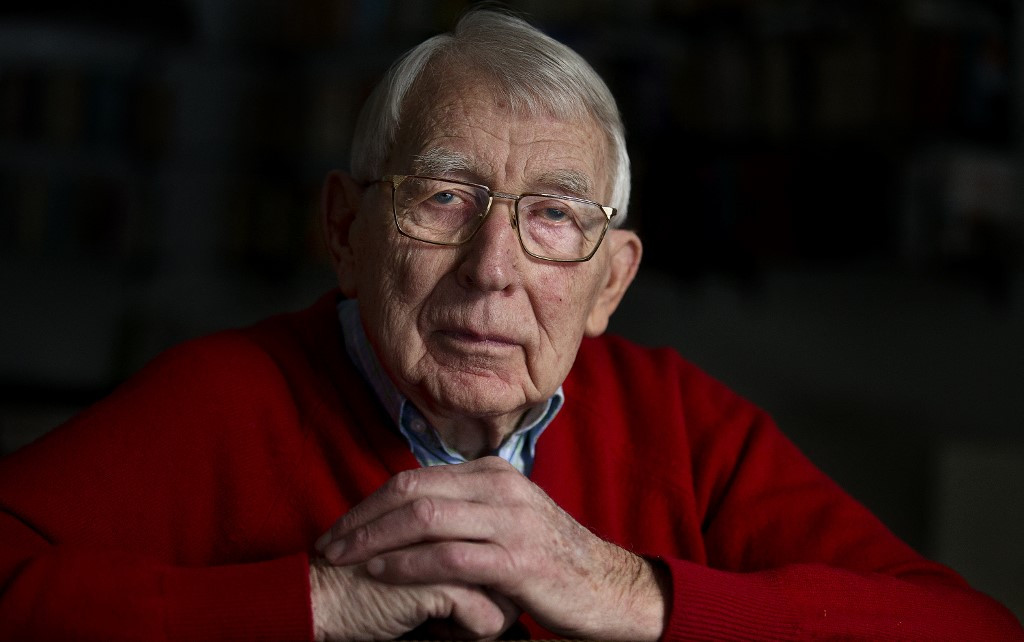Tributes went on Friday after Dutch engineer Lou Ottens, responsible for inventing the cassette and helping to create the CD, died at the age of 94.
Created by Ottens while working for the electrical giant Philips, cassette tapes made music truly portable for the first time and allowed a generation of music fans to mix their favorite songs.
Versatile, though annoyingly easy to unpack, more than 100 billion cassette tapes were produced around the world at their peak between the 1960s and 1980s, and even enjoyed a recent retro resurgence.
“We were all saddened to hear about the death of Lou Ottens,” said Olga Coolen, director of the Philips Museum in Eindhoven, in a statement provided to AFP.
“Lou was an extraordinary man who loved technology, although his inventions had a humble beginning.”
He died on March 6 in the village of Duizel, near the border with Belgium, said Philips.
Born in 1926 in the Dutch city of Bellingwolde, Ottens showed his interest in technology at a young age during the occupation of Holland by Nazi Germany in World War II.
He built a radio to receive the “free Dutch” Radio Oranje with a special antenna that he called “Germanenfilter” because it could avoid Nazi jammers, Dutch newspaper NRC reported.
Ottens joined Philips after studying engineering at the university, where he and his team developed the world’s first portable recorder, according to Philips.
But he was frustrated by the bulky reel-to-reel system that needed manual winding, so he invented the cassette in 1962.
“The cassette was invented because of irritation with the existing recorder, it is that simple,” Ottens told the NRC in an interview.
‘Wooden block’
The technology that made the portable tape player possible and filled millions of teen rooms with music started in the most humble way, said Coolen.
“During the development of the cassette tape, in the early 1960s, (Ottens) had a wooden block made that fit exactly in his coat pocket,” he added.
“This was the size that the first compact cassette should be, making it much more practical than the bulky recorders in use at the time.”
The historic wooden block prototype was sadly “lost when Lou used it to support his monkey while changing a flat tire,” added Coolen.
Ottens then supervised a team that developed the CD, which was then produced by Philips and Japanese electronics giant Sony.
More than 200 billion CDs have been produced since then, Philips said.
Previously relegated to the dustbin of musical history, cassettes have been resurfacing lately.
Sales of cassette albums in the U.S. increased 23% in 2018, according to tracker Nielsen Music, jumping from 178,000 copies the previous year to 219,000.
Despite being the anonymous hero of the music world, Ottens’ career had its frustrations.
Sony released not only their first CD before Philips, but also the famous Walkman that transformed the way people listen to music – years later, he said “it still hurts that we don’t have one”.
Your premium period will be expires in 0 day (s)
close x

